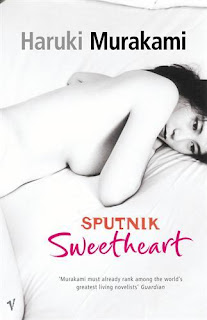
Title: The Great Gatsby
Author: F Scott Fitzgerald
Number of pages: 144
Started: 28 June 2009
Finished: 30 June 2009
Opening words:
In my younger and more vulnerable years my father gave me some advice that I've been turning over in my mind ever since.
"Whenever you feel like criticizing any one," he told me, "just remember that all the people in this world haven't had the advantages that you've had."
He didn't say any more but we've always been unusually communicative in a reserved way, and I understood that he meant a great deal more than that. In consequence I'm inclined to reserve all judgments, a habit that has opened up many curious natures to me and also made me the victim of not a few veteran bores. The abnormal mind is quick to detect and attach itself to this quality when it appears in a normal person, and so it came about that in college I was unjustly accused of being a politician, because I was privy to the secret griefs of wild, unknown men. Most of the confidences were unsought--frequently I have feigned sleep, preoccupation, or a hostile levity when I realized by some unmistakable sign that an intimate revelation was quivering on the horizon--for the intimate revelations of young men or at least the terms in which they express them are usually plagiaristic and marred by obvious suppressions. Reserving judgments is a matter of infinite hope. I am still a little afraid of missing something if I forget that, as my father snobbishly suggested, and I snobbishly repeat a sense of the fundamental decencies is parcelled out unequally at birth.
Read the whole book here or here.
Plot summary:
Jay Gatsby is the man who has everything. But one thing will always be out of his reach ... Everybody who is anybody is seen at his glittering parties. Day and night his Long Island mansion buzzes with bright young things drinking, dancing and debating his mysterious character. For Gatsby - young, handsome, fabulously rich - always seems alone in the crowd, watching and waiting, though no one knows what for. Beneath the shimmering surface of his life he is hiding a secret: a silent longing that can never be fulfilled. And soon this destructive obsession will force his world to unravel.
What I thought:
I really enjoyed this book. It was a relatively short read that looked at a decadent life and its ultimate end. It was touching and poignant in places and I found the conclusion remarkably moving. It was well written with an engaging plot and had some wry observations on life. A remarkably affecting book that will stick with me for a while – and one I might revisit one day.





